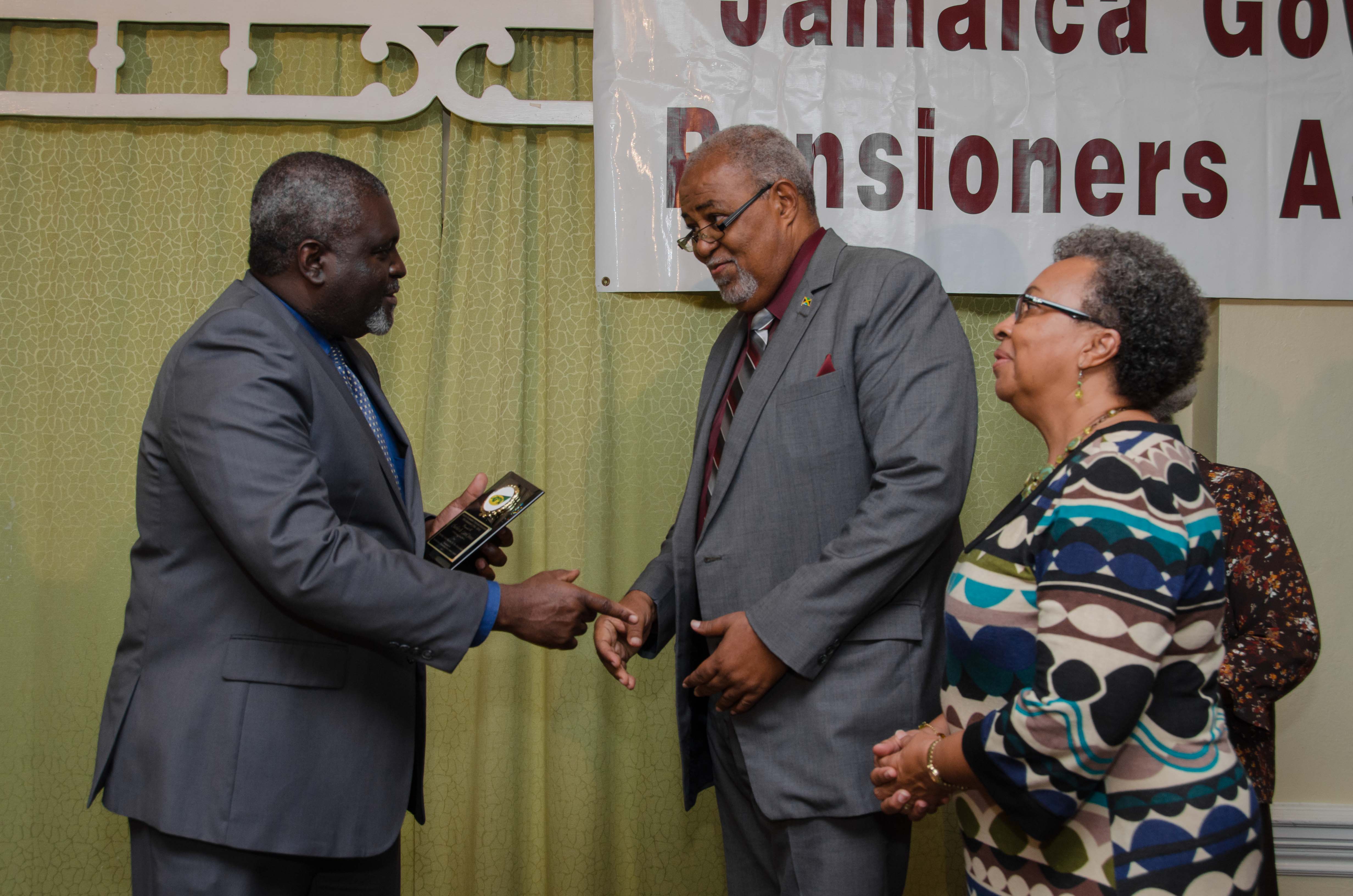Financial Secretary Highlights Importance of ERP
By: , December 23, 2014The Key Point:
The Facts
- The Financial Secretary, who represented Minister with responsibility for the Public Service, Hon. Horace Dalley, said the needs of pensioners are recognized, and discussions are ongoing to determine how best these can be further improved to safeguard their welfare.
- Mr. Rowe said at the end of the ERP’s implementation in 2017, “we expect to see lower inflation; the exchange rate system will still be stable; growth will be moving to three to four per cent of GDP;
The Full Story
Financial Secretary in the Ministry of Finance and Planning, Devon Rowe, says implementation of the Economic Reform Programme (ERP) is expected to provide the Government with the additional resources needed to undertake targeted responsibilities.
“To the extent that we are able to bring the fiscal arrangements under control, it provides the Government with more resources to do those things that it really ought to be doing to execute its functions, to ensure that the State is viable,” he said, citing provisions to Government pensioners as an example.
Mr. Rowe was addressing the 50th anniversary awards luncheon of the Jamaica Government Pensioners Association (JGPA), held recently at the Knutsford Court Hotel, in New Kingston.
The Financial Secretary, who represented Minister with responsibility for the Public Service, Hon. Horace Dalley, said the needs of pensioners are recognized, and discussions are ongoing to determine how best these can be further improved to safeguard their welfare.
Mr. Rowe noted that these persons have served, in many cases, at great sacrifice to self, and they should live out the remainder of their lives in dignity and pride.
He pointed out that measures within the four-year ERP, which is integral to the Extended Fund Facility (EFF) agreement with the International Monetary Fund (IMF), have started to yield the desired results.
The Financial Secretary said these include: “modest” growth; “moderate” inflation; exchange rate stabilization; increased tourist arrivals; a reduction in interest rates; narrowing of the current account deficit; and a reduction in the debt to Gross Domestic Product (GDP) from 147 per cent to 139 per cent, adding that this is “likely to go further to 131 per cent by the end of this year, and heading in the correct direction to 96 per cent by 2020.”
Mr. Rowe said at the end of the ERP’s implementation in 2017, “we expect to see lower inflation; the exchange rate system will still be stable; growth will be moving to three to four per cent of GDP; we will have a logistics-centred economy in (progress); a human capital system, which will allow pensioners to be paid on time and the amounts they are due; public sector modernization will be far advanced; and electronic governance will be well in place.”
Mr. Rowe assured that the Ministry is committed to working in conjunction with the JGPA, “to ensure that the lives of our unsung heroes and heroines, who served this great country, are in good shape.”
More than 30 retired civil servants were recognized for distinguished service to the Association.




